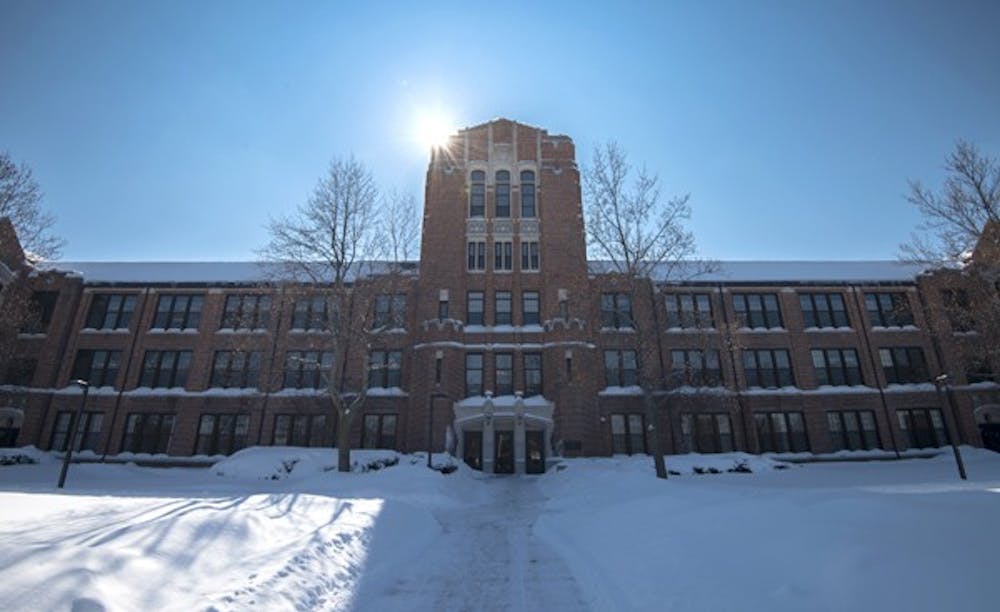Winter weather woes cause frustration, while one RSO relishes it
Shaye Lenz does not like the unusually cold winter that Michigan and other parts of the country have experienced.
Lenz, who is the vice president of the student chapter of the American Meteorological Society at Central Michigan University, says she loves storms as long as they do not include snow.
"It's cool for the first snowfall or the first accumulation, then I'm done with it, so it can go away," the Fenton junior said. "I'm a summer person so this is not really my thing."
The student chapter of the American Meteorological Society is a registered student organization with a common interest in the atmosphere and it's processes at CMU.
SCAMS Treasurer Timothy Thielke, a sophomore from Sand Lake, started attending meetings as a freshman and learned about the trends in the weather and found the obscure RSO to be very beneficial.
Coming to meetings, discussing weather and the related maps has helped students of meteorology apply knowledge from classes with most of the examples shown in typical class settings from past weather.
"Classes discuss previous weather," Thielke said. "These meetings are a little more hands on than the classes."
Assistant professor of meteorology Ashton Peyrefitte said this winter is similar to what he calls "the great winter of 1976-77." There is a large high pressure system over the North Pole, which is typically not the case.
"This year, and back in 76-77, we had higher pressure," he said. "What this did was to split the polar vortex, which is the normal low pressure area that exists over this area, into several parts, one of which took up residence over James Bay in Canada."
He said this very cold area and a great warm ridge on the west coast, which funnels colder air into North America from the north pole and Siberia, combined to force very cold air into southeast Canada and the eastern central part of the United States.
But Peyrefitte does not have his hopes up just yet.
"It's certainly going to be warmer, but how much warmer (is) the answer to that question," he said.
This year, the United States has experienced various kinds of inclement weather as Peyrefitte has told his students they are lucky to be around this year.
"You are fortunate to be here as meteorologists, not because it is humanely comfortable, but because you can learn a great deal about the atmosphere," Peyrefitte said.




